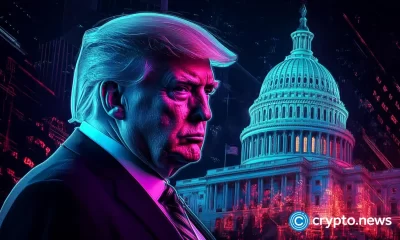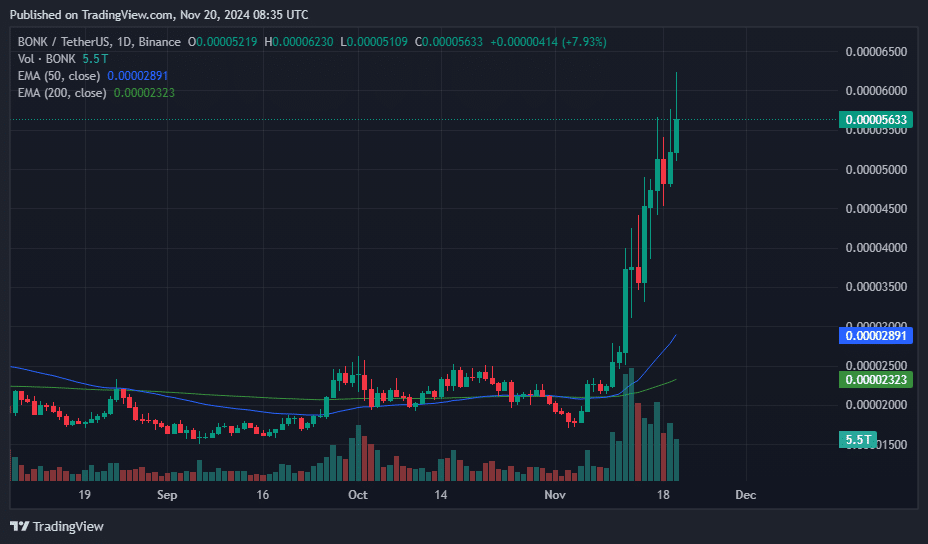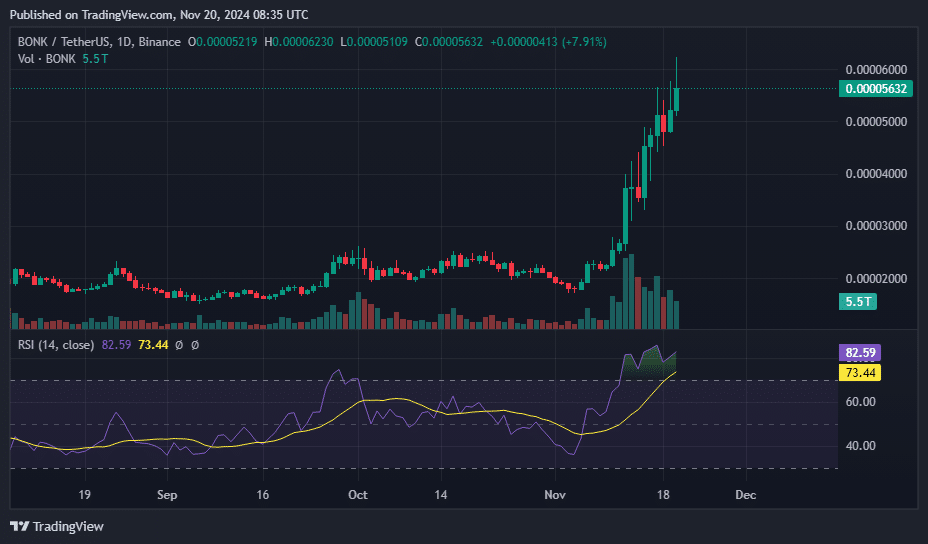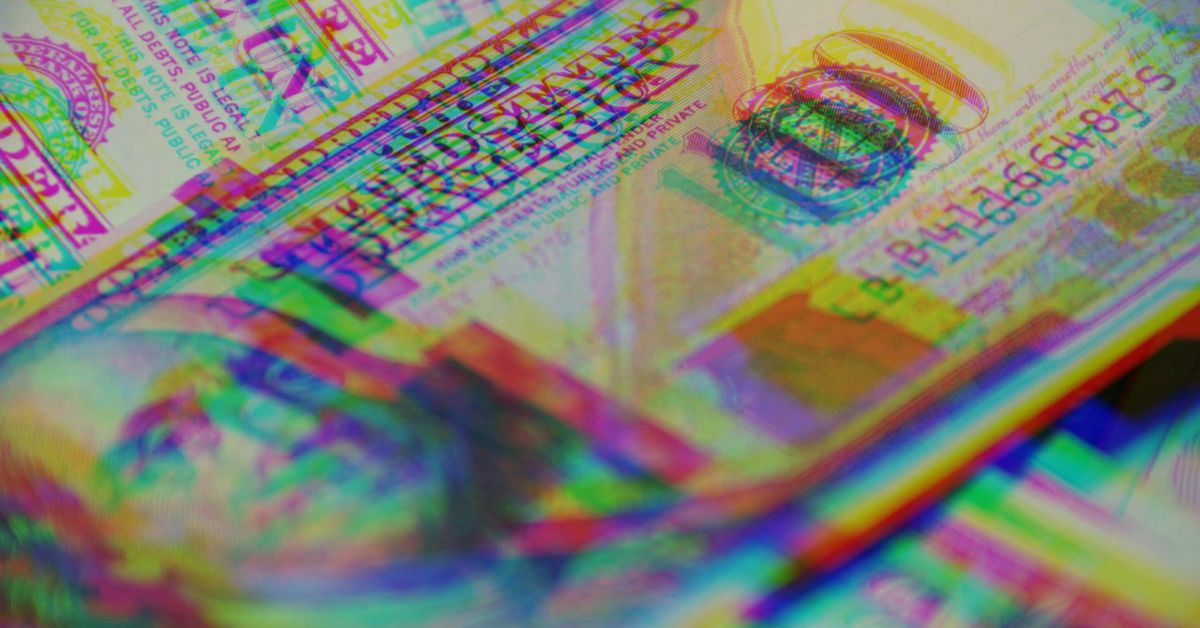DeFi
Babylon Bitcoin staking drives BTC fees above $130
Published
3 months agoon
By
admin

A Bitcoin fee bidding war erupted on Aug. 22 as Babylon debuted phase one of its native BTC staking offering.
Early on Thursday, Aug. 22, the average Bitcoin (BTC) transaction fee was under $1. Closer to noon, users had to pay around $132-$137 to transfer BTC after Babylon’s Bitcoin staking program went live.
Babylon’s BTC staking allows users to earn yield by depositing crypto directly on proof-of-stake (PoS) networks. The idea aims to expand BTC utility beyond the “digital gold” narrative, which typically incentivizes holding the asset rather than using it in more active financial strategies.
Phase one of Babylon’s staking system was a “locking-only phase,” where users quickly filled the maximum allocation within hours.
In BTC’s case, as a proof-of-work (PoW) blockchain, miners validate transactions in exchange for fees. Higher fees can encourage miners to prioritize certain transactions.
The rush to participate in Babylon’s staking platform triggered an on-chain scramble among users, driving competition for miner priority and propelling BTC fees near $140, as confirmed by CryptoQuant analyst J.A. Maartun.
Over 1,000 BTC, worth nearly $61 million, was prepared for phase two after the race to stake assets. More than 12,700 stakers and 20,610 solo delegates queued up to earn rewards by securing PoS chains with BTC.
Rising Bitcoin adoption and utility
Staking in decentralized finance (DeFi) is common among PoS chains, allowing crypto holders to generate passive income from their assets. While this practice is native to PoS networks, developers have been exploring ways to extend it to Bitcoin’s ecosystem.
The move effectively broadens BTC’s role in DeFi, at a time when institutional interest in crypto is growing. Wall Street giants like BlackRock and Fidelity were approved to launch spot BTC ETFs in January, and funds from traditional finance and crypto-native wealth managers have since accumulated over $50 billion in assets.
U.S. presidential candidates have mentioned creating a national BTC reserve and institutional ownership continued on the uptrend at press time.
Source link
You may like


Gary Gensler’s Departure Is No Triumph For Bitcoin


Magic Eden Token Airdrop Date Set as Pre-Market Value Hits $562 Million


Blockchain Association urges Trump to prioritize crypto during first 100 days


Pi Network Coin Price Surges As Key Deadline Nears


How Viable Are BitVM Based Pegs?


UK Government to Draft a Regulatory Framework for Crypto, Stablecoins, Staking in Early 2025
cryptocurrency
BONK hits new all-time high following Upbit listing
Published
2 days agoon
November 20, 2024By
admin
BONK has emerged as the top gainer among the leading 100 assets following a major announcement from the South Korean crypto exchange Upbit.
Bonk (BONK), the first Solana-based meme coin, surged 18% on Wednesday to hit a new all-time high of $0.000058. Its market cap soared to over $4.1 billion when writing, flipping Dogwifhat’s (WIF) $3.2 billion market cap to reclaim its position as the largest meme coin on the Solana blockchain.
Why is BONK going up?
The altcoin’s price uptick coincided with a jump in the meme coin’s futures open interest. According to data from CoinGlass, OI for BONK’s futures market rose to an all-time high of $53.5 million, more than 7 times its monthly low of $6.3 million, suggesting a growing demand from investors.
Bonk’s recent rally followed its listing on South Korea’s largest crypto exchange, Upbit. BONK’s daily trading volume shot up 95% amid the listing, hovering over $3.5 billion when writing.
Another key factor driving the altcoin’s gains is Bonk DAO’s announcement of a massive 1 trillion token burn scheduled for Christmas Day, which is set to reduce the total number of tokens in circulation, thereby increasing scarcity.
Whales have also been interested in the meme coin lately. According to data shared by Lookonchain, a whale with a history of profitable meme coin investments has spent 3.4 million USDC to buy 65.4 billion BONK tokens. Last week, another whale was seen picking up 29.32 billion BONK at $0.0000387.
Whale buying typically boosts retail investor confidence in an asset, potentially driving FOMO (fear of missing out) among those seeking quick gains.
Bullish momentum to continue
BONK’s rally hasn’t lost strength despite surging over 72% in the past week alone. On the 1-day BONK/USDT price chart, BONK’s EMA lines show a strong bullish trend, with the short-term 50-day EMA above the long-term 200-day EMA and the price staying above both lines.

Based on this setup, the bullish trend is expected to continue in the short term as the buyers remain in control. However, the Relative Strength Index showed a reading of 82, which confirms the bullish momentum but puts the meme coin at overbought levels.

Despite the overbought status, an analyst suggests that BONK is undergoing a ‘Blue Sky breakout,’ which could sustain its upward trajectory in the coming days.
This speculation is supported by strong catalysts driving the uptrend and the current hype around meme coins. Separately, Bitcoin’s recent rally to new highs has amplified market-wide sentiment, further boosting interest in the meme coin sector, which gained 2.3% over the past day.
Source link
DeFi
Ethena Sees $1B Inflows as Crypto Rally Brings Back Double-Digit Yields
Published
3 days agoon
November 19, 2024By
admin

The protocol’s rejuvenation is driven by elevated perpetual funding rates, with more catalysts ahead for growth.
Source link
crypto
Uncertainty Looms For Crypto As SEC And CFTC Leadership Transitions Unfold Under Trump
Published
5 days agoon
November 17, 2024By
admin
As Donald Trump prepares to take office for another term, speculation is intensifying regarding the future of crypto regulation, particularly concerning the leadership of the US Securities and Exchange Commission (SEC).
Recent social media posts by FOX journalist Eleanor Terret suggest that SEC Chairman Gary Gensler may be on the verge of resigning, possibly before Trump’s inauguration in January 2025.
Pro-Crypto Candidates In The Running To Succeed Gensler
According to sources close to the situation, Terret says Gensler’s resignation, which would leave his term, set to expire in 2026, uncompleted, is expected to be announced after Thanksgiving.
However, while Gensler has faced heavy criticism during his tenure for his strict regulatory approach to the crypto industry, the identity of his successor remains uncertain.
Related Reading
Former Commodity Futures Trading Commission (CFTC) Chairman Christopher Giancarlo has dismissed rumors regarding his nomination, while several other candidates are being considered.
Among the names in the mix are Dan Gallagher, Chief Legal Officer at crypto exchange Robinhood; Bob Stebbins, a partner at Willkie Farr; former SEC Commissioner Paul Atkins; and Paul Hastings lawyer Brad Bondi.
Terret suggests that Gallagher, while initially reluctant to leave Robinhood, may reconsider as the dynamics of the administration’s appointments shift.
Stebbins, who has close ties to Jay Clayton, a former SEC chairman, is rumored to be a favored candidate, though he lacks a crypto background. Still, sources suggest he would follow the Trump administration’s lead on digital assets.
Atkins and Bondi are both known for their pro-crypto stance, advocating for a “lighter regulatory touch.” Atkins serves on the board of the Digital Chamber of Commerce and co-chairs its Token Alliance, focusing on token issuance growth. Bondi has been involved in advising decentralized finance (DeFi) projects, indicating a commitment to fostering innovation in the crypto space.
Trump Plans Resource Allocation For CFTC
Other names circulating in crypto circles include former CFTC Chair Heath Tarbert, former Acting Comptroller of the Currency Brian Brooks, and former SEC Investment Management Director Norm Champ. Champ recently expressed his willingness to serve if asked, signaling his interest in a potential role in the upcoming administration.
In addition, pro-crypto SEC Commissioner Mark Uyeda is reportedly open to taking the chairmanship, possibly as acting chair, while fellow Commissioner Hester Peirce, dubbed the “crypto mom” of the agency, has privately indicated her disinterest in the role.
Related Reading
With these leadership changes on the horizon, Terret anticipates that the new SEC chair will be pro-crypto, while also being equipped to handle the broader responsibilities of the agency, which include oversight of public companies, the stock market, the bond market, private funds, and the consolidated audit trail (CAT).
Compounding the speculation is the expectation that the Trump administration may also increase the CFTC’s role in cryptocurrency regulation. Terret asserts that the administration is considering allocating more resources to the CFTC, although the specifics of how this will be implemented remain unclear and would likely require additional funding.
Featured image from DALL-E, chart from TradingView.com
Source link

Gary Gensler’s Departure Is No Triumph For Bitcoin

Magic Eden Token Airdrop Date Set as Pre-Market Value Hits $562 Million

Blockchain Association urges Trump to prioritize crypto during first 100 days

Pi Network Coin Price Surges As Key Deadline Nears

How Viable Are BitVM Based Pegs?

UK Government to Draft a Regulatory Framework for Crypto, Stablecoins, Staking in Early 2025

Bitcoin Cash eyes 18% rally

Rare Shiba Inu Price Patterns Hint SHIB Could Double Soon

The Bitcoin Pi Cycle Top Indicator: How to Accurately Time Market Cycle Peaks
Bitcoin Breakout At $93,257 Barrier Fuels Bullish Optimism

Bitcoin Approaches $100K; Retail Investors Stay Steady

Solana Hits New ATH On Huge Whale Accumulation, More Gains Ahead?

Microsoft Should Buy $78 Billion Worth of Bitcoin

Ethereum Believers May Be Staring Down Opportunity As ETH Reaches Another Low Against Bitcoin: CryptoQuant CEO

UK government is ready for crypto regulations next year
182267361726451435

Top Crypto News Headlines of The Week

Why Did Trump Change His Mind on Bitcoin?

New U.S. president must bring clarity to crypto regulation, analyst says

Ethereum, Solana touch key levels as Bitcoin spikes

Bitcoin Open-Source Development Takes The Stage In Nashville

Will XRP Price Defend $0.5 Support If SEC Decides to Appeal?

Bitcoin 20% Surge In 3 Weeks Teases Record-Breaking Potential

Ethereum Crash A Buying Opportunity? This Whale Thinks So

Shiba Inu Price Slips 4% as 3500% Burn Rate Surge Fails to Halt Correction

‘Hamster Kombat’ Airdrop Delayed as Pre-Market Trading for Telegram Game Expands

Washington financial watchdog warns of scam involving fake crypto ‘professors’

Citigroup Executive Steps Down To Explore Crypto
Mostbet Güvenilir Mi – Casino Bonus 2024

Bitcoin flashes indicator that often precedes higher prices: CryptoQuant
Trending

 2 months ago
2 months ago182267361726451435

 24/7 Cryptocurrency News3 months ago
24/7 Cryptocurrency News3 months agoTop Crypto News Headlines of The Week

 Donald Trump4 months ago
Donald Trump4 months agoWhy Did Trump Change His Mind on Bitcoin?

 News3 months ago
News3 months agoNew U.S. president must bring clarity to crypto regulation, analyst says

 Bitcoin4 months ago
Bitcoin4 months agoEthereum, Solana touch key levels as Bitcoin spikes

 Opinion4 months ago
Opinion4 months agoBitcoin Open-Source Development Takes The Stage In Nashville

 Price analysis3 months ago
Price analysis3 months agoWill XRP Price Defend $0.5 Support If SEC Decides to Appeal?

 Bitcoin4 months ago
Bitcoin4 months agoBitcoin 20% Surge In 3 Weeks Teases Record-Breaking Potential


